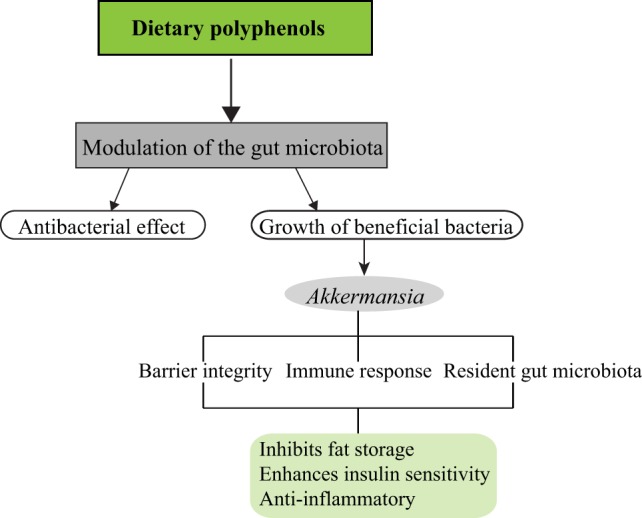Figure 1.

Dietary polyphenols and impact on the gut microbiota. Different classes of dietary polyphenols modulate the gut microbiota by various means. This could be by exerting antibacterial effect as observed in flavonoids on six pure cultures of intestinal bacteria (10) and stimulating the growth of beneficial bacteria in the gut microbiota such as Akkermansia. Akkermansia, in turn, generates short-chain fatty acids from the breakdown of mucins, which stimulates the goblet cells to produce more mucus thereby preserving/replenishing the intestinal barrier integrity. Mucus secretion is associated with the activation of the immune system, by preventing increased interaction of microbe-associated molecular patterns with intestinal epithelial cells, and stimulating other immune responses. This helps to reduce intestinal inflammation. Akkermansia may also influence resident gut bacteria by acting as an oxygen scavenger thereby, creating a favorable environment for the growth of strict anaerobes, which could have a synergistic effect on the host.
